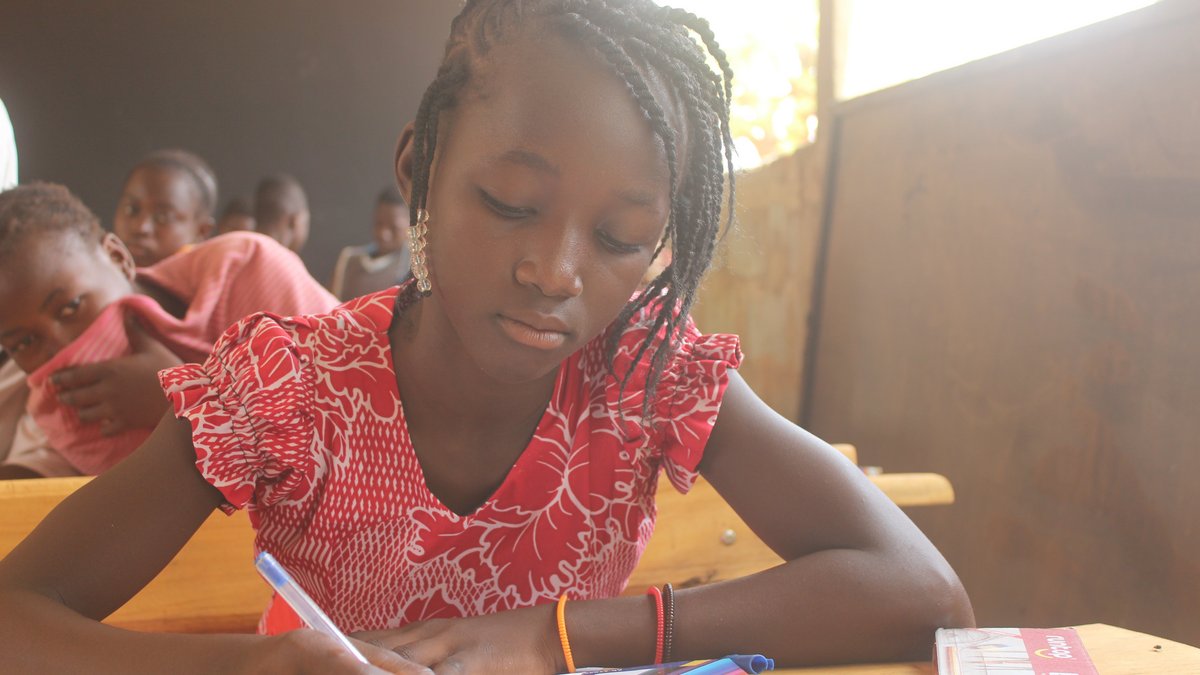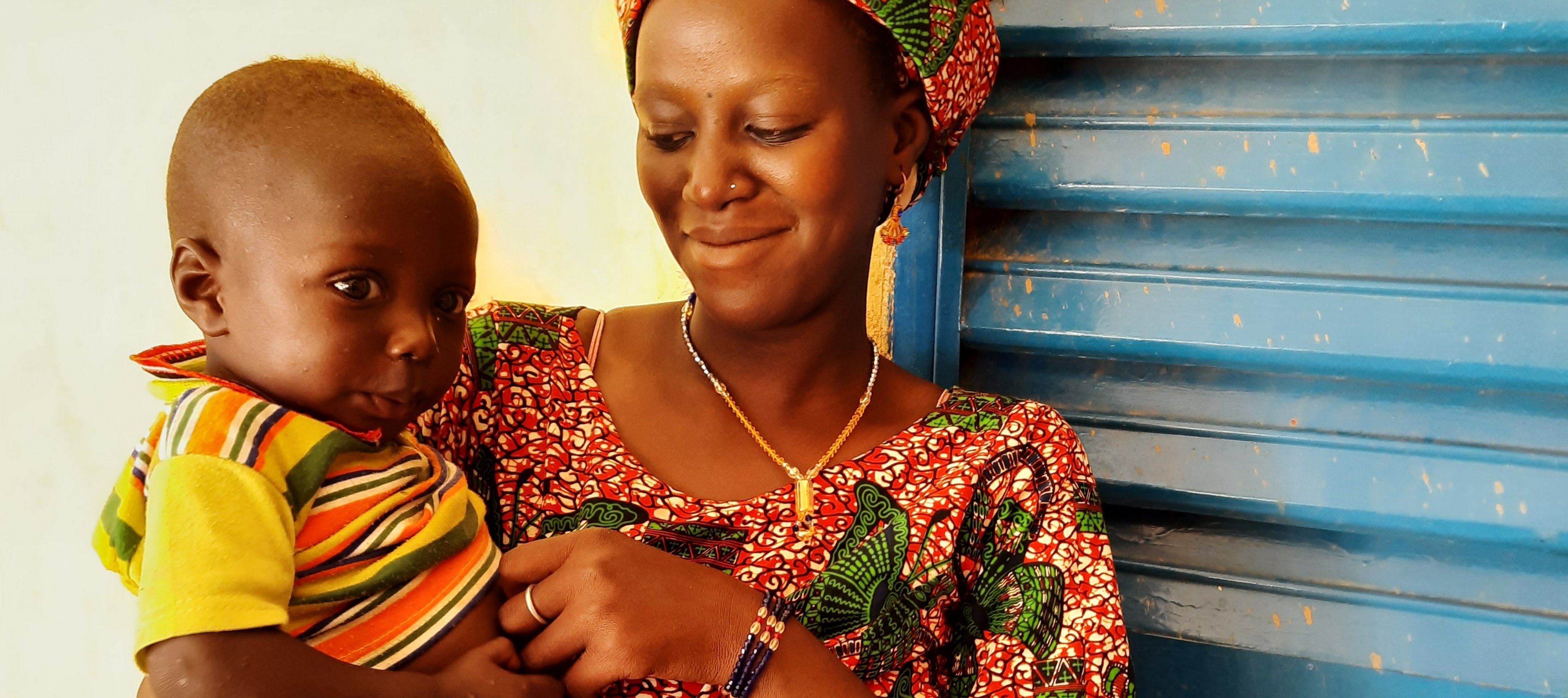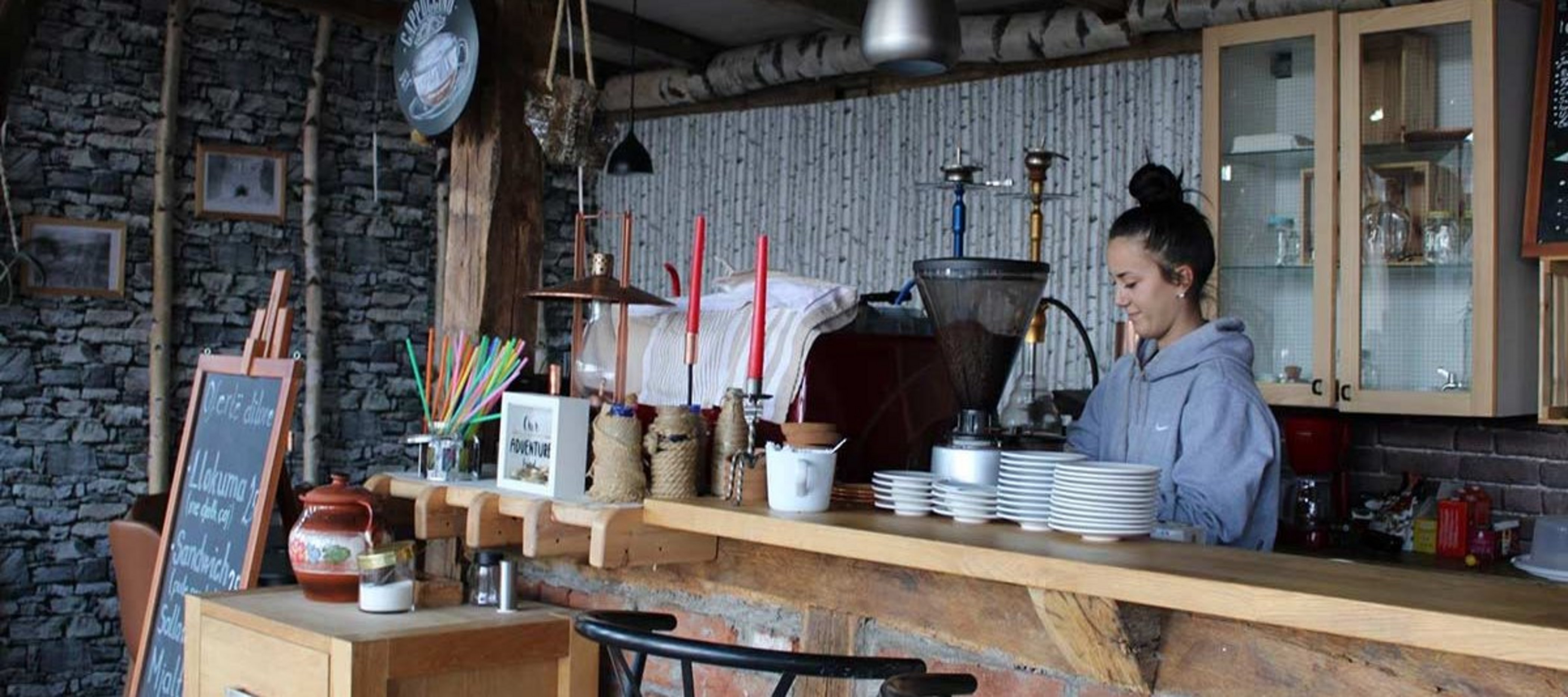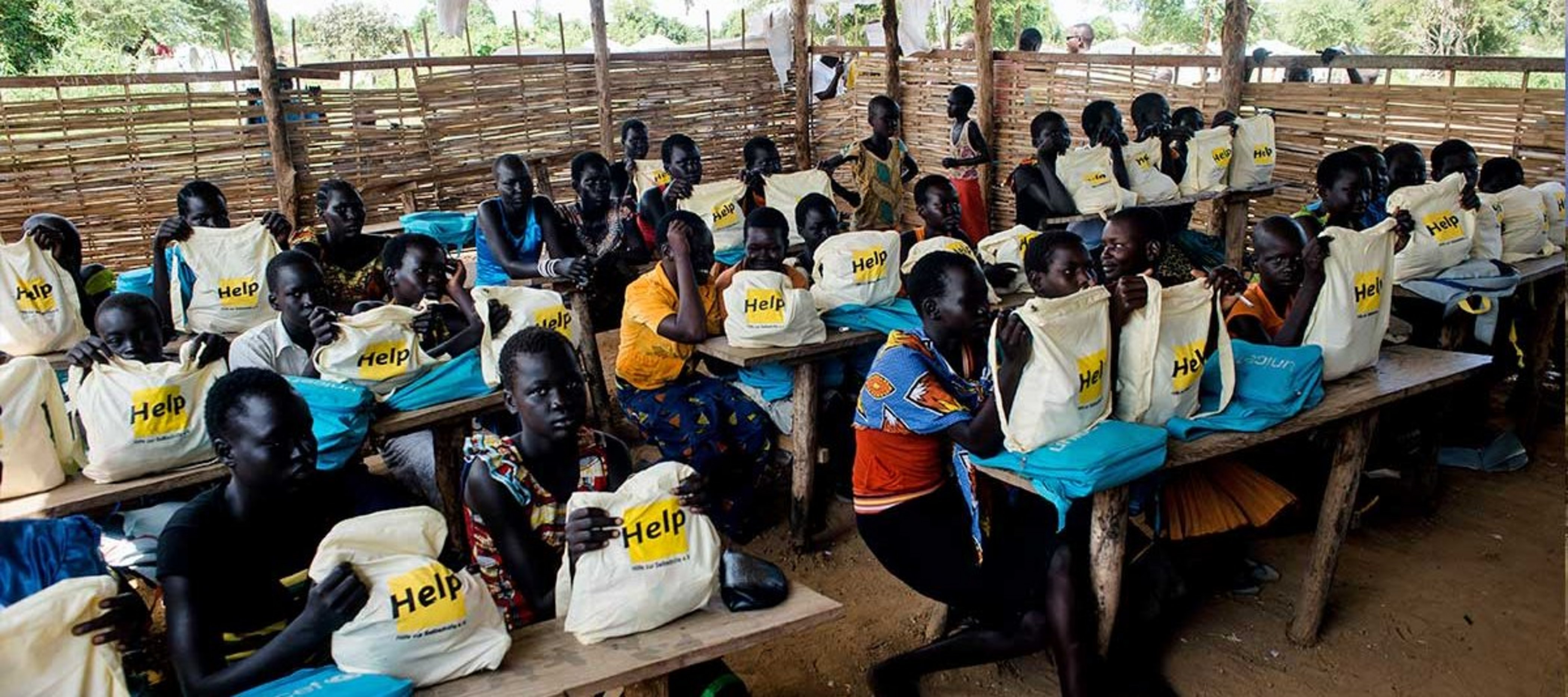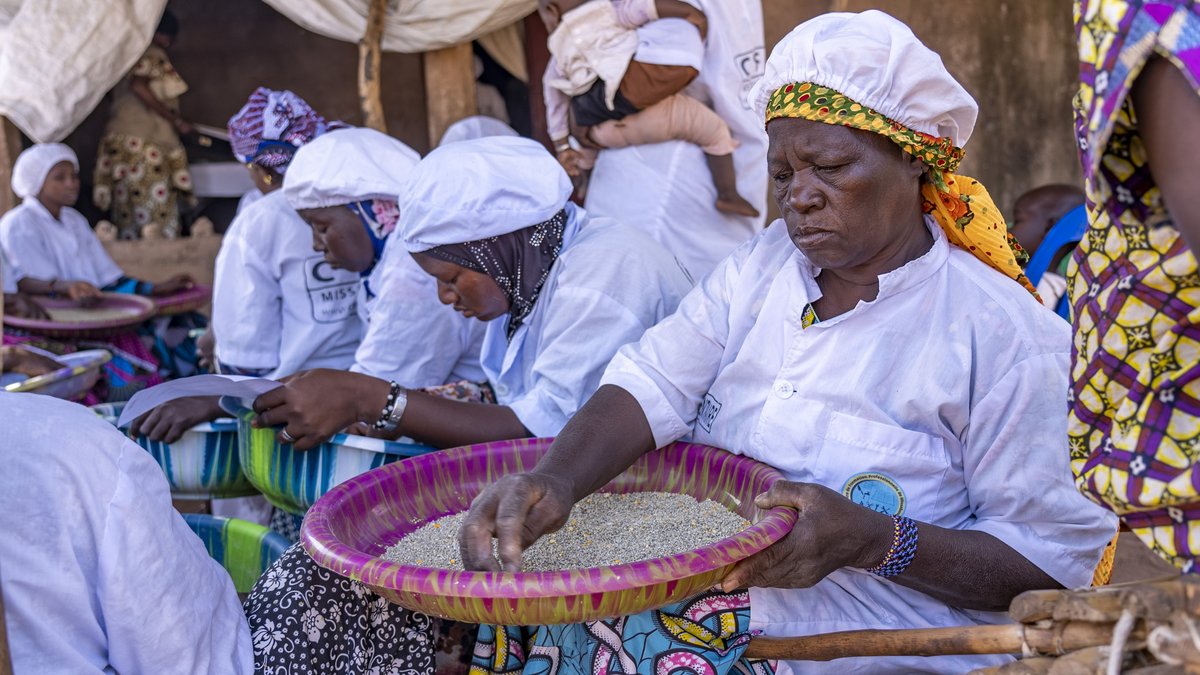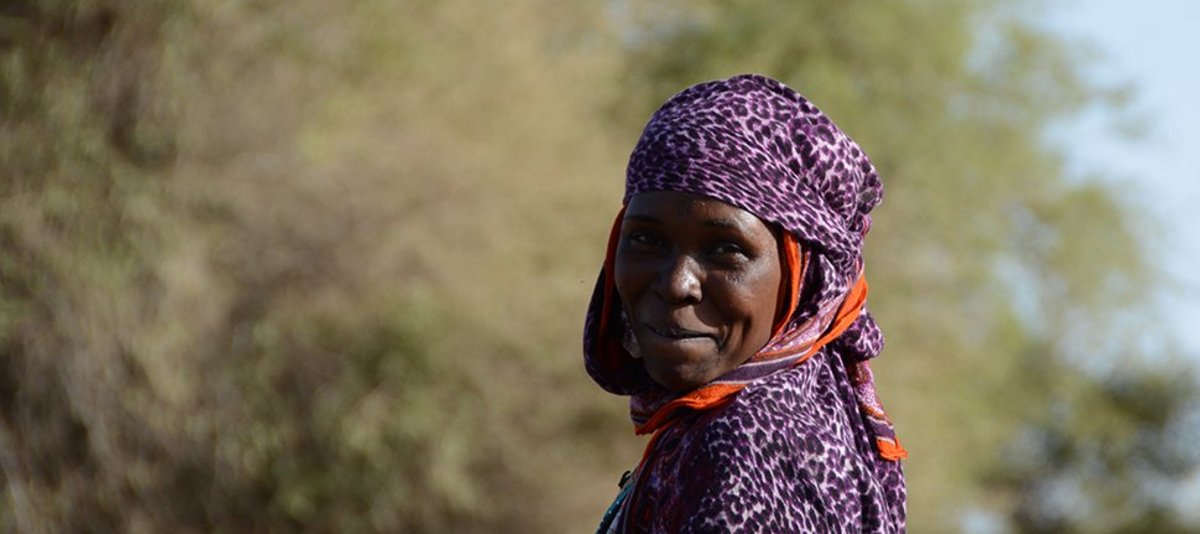Empowering women and girls
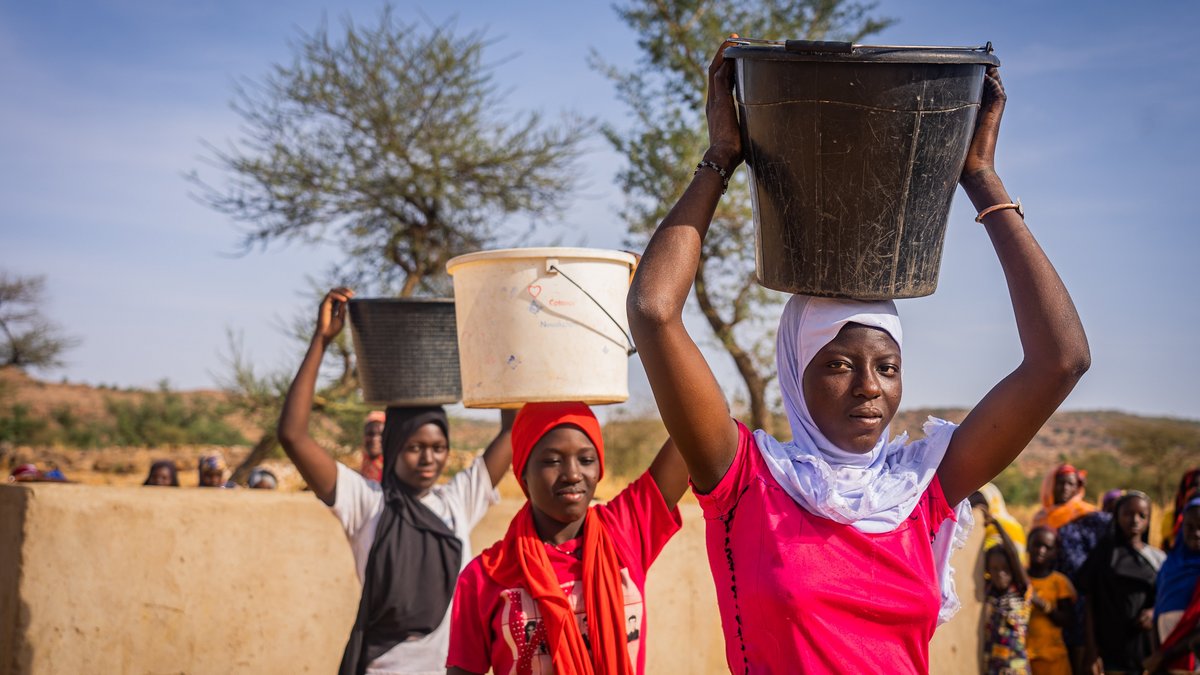
Empowering women & girls worldwide
Equal rights are a human right. Nevertheless, women all over the world are affected by discrimination and disadvantage.
Help is committed to empowering girls and women in education, work and politics worldwide. Support our commitment to women worldwide:
Disadvantaged from birth
For millions of women, education, politics and a self-determined life are still out of reach. According to the United Nations, 130 million girls worldwide do not go to school.
Boys are 83 percent more likely to reach secondary school than girls. On average, boys attend school twice as long as girls. This is mainly due to the fact that girls have to help more in the household and, for example, have to walk several hours a day to the nearest water source to fetch water for the family. Girls are also often excluded during their periods because there are insufficient sanitary and hygiene facilities at schools.
And yet women do the vast majority of the work: in some regions, they produce 80 percent of the food. On average, however, women earn 23 percent less than men.
The German Federal Ministry for Economic Cooperation and Development explains that countries in which the differences between men and women in education and employment are small have fewer problems with malnutrition and child mortality. Women are the driving force behind sustainable development.
How does Help support women worldwide?
Empowerment
We are convinced that hardship, poverty and hunger can only be overcome together. In numerous projects, Help therefore strengthens the rights of women worldwide and empowers them to take their future into their own hands.
The key to this is education: We give girls access to education by improving the sanitary infrastructure at schools, providing menstrual products and building wells.
We also promote entrepreneurs, for example through training and education, microcredits and support for women's cooperatives. Financial independence gives women the chance to lead a self-determined life.
Lizzy from Zimbabwe
![[Translate to English:] Simbabwe-Ernaehrungssicherung [Translate to English:] Mutter mit Kind in Simbabwe](/fileadmin/_processed_/2/4/csm_frauen-weltweit_1902_28_b9779d79df.jpg)
"As a 37-year-old mother of five wonderful girls, I strive to make the world a better place for my children and for women in general. From the very beginning, I saw our chicken farm as a family business in order to combat gender roles and discrimination. Because physical labor is seen by many in society as a 'man's job'. I started my business with 30 birds - today there are 300 birds and I collect 2,500 eggs per month. This gives us a net profit of 150$ every month! And I use the droppings to fertilize my fields.
Thanks to Help's support, I was able to start my chicken farm and can now send my girls to school, feed the family and take care of all my family's needs - including my husband's."
Every girl should be able to pursue any profession.
Lizzy, Farmer in Zimbabwe
Q&A
Hardship, discrimination and violence are part of everyday life for women and girls: forced marriage, physical and psychological violence, sexual abuse, mass rape in war and crisis situations or female genital mutilation - violence against women and girls, precisely because they are women and girls, takes many forms.
Inequality between men and women is still deeply rooted in every society worldwide. For example, women have less access to jobs and educational opportunities, face pay gaps compared to men with the same qualifications and are underrepresented in economic and political decision-making processes. In many countries, healthcare is also not adapted to the needs of women.
Article 1 of the Universal Declaration of Human Rights states: "All human beings are born free and equal in dignity and rights." This means that people are equal regardless of their gender. In reality, however, this is not the case. A key reason for this is often the separation between the private and public spheres, which excluded women from human rights for decades. This is because human rights violations against women and girls often occur in the "private sphere", away from the public eye and the justice system. Certain rights for women should therefore explicitly protect women and girls from violence and discrimination.
A so-called Commission on the Status of Women was founded within the United Nations in 1946. The aim of the Commission is to improve the legal status of women in the political, economic and social spheres. Unlike the Commission on Human Rights, however, the Commission on the Status of Women does not have the power to hold states that discriminate against women to account.
It was not until the Vienna Conference on Human Rights in 1993 that the United Nations adopted a "Declaration on the Elimination of Violence against Women" and defined forms of violence against women and girls in the public and private sphere as a violation of human rights.
In 2010, the United Nations founded the organization "UN Women" with the aim of promoting gender justice and equality worldwide. In the 17 Sustainable Development Goals (SDGs), women's rights are also represented by Goal 5 "Gender Equality".
On March 8, 1857, New York women workers demonstrated in the streets for the first time against inhumane working conditions and for equal pay. The protests of the women workers thus mark the historical origin of a movement demanding justice for women. Half a century later, at the second international socialist women's conference in 1910, the German socialist Clara Zetkin put forward a motion to establish a World Women's Day. The motion was adopted unanimously.
However, it was not until the 2nd International Conference of Communist Women in 1921 that a uniform date, March 8, was established. Since 1975, March 8 has been officially recognized by the United Nations as International Women's Day. On this day, women around the world hold demonstrations, rallies and campaigns to draw attention to violence and discrimination against women and girls and demand equal rights and equality.

